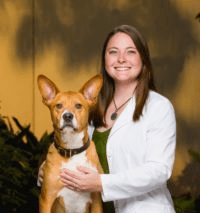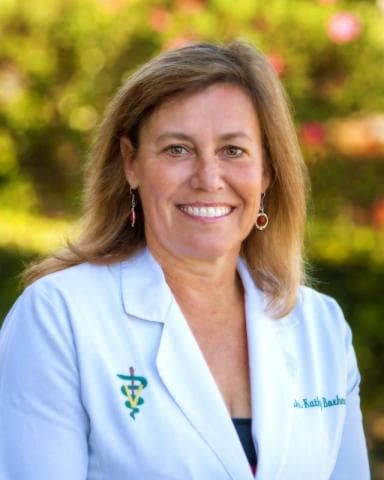Optimum Feline Nutrition. What Should You Feed Your Cat?
Getting your cat on an optimal nutrition plan can improve the length and quality of your pet's life, so it's no wonder that, as a responsible pet parent, you have questions. At GeniusVets, we believe that pet care information should come from veterinarians and not from the internet, as anyone with a computer can share information these days. That’s why we’ve taken frequently asked questions on cat nutrition, sent these questions to renowned veterinarians across the U.S., and compiled their replies to get you useful information that you can trust.
While we've sourced all of the cat nutrition exam information and recommendations below directly from leading veterinarians across the country, please make sure to seek out the advice of your own veterinarian or find a trusted vet near you using the GeniusVets Directory.
How does nutrition impact the health and wellbeing of my cat?
Proper nutrition is crucial in cats because they have particular nutritional requirements that are quite different from dogs. Cats also don’t like it when you switch up their food on them often, so you want to make sure you make the right, nutrient-dense choice from the start.
Cats are obligate carnivores or meat-eaters, so they have special needs. It’s vital for vegetarian or vegan pet owners who eat plant-based proteins to realize their cats can't do so, as most of their protein requirements should come from meat proteins. When looking at cat food labels, look for high levels of meat protein-based diets. The higher the quality of the ingredients in that food and the frequency with which they eat will play a significant role in the development and weight maintenance of cats. Many of the medical issues we see in cats have to do with obesity, making these decisions all the more critical.
As a reminder, fresh water should always be readily available 24 hours a day. It’s also worth mentioning that cats have natural hunting instincts, so any time you can help an indoor cat hone these instincts by using treat puzzles and other toys, the happier your cat will be.
Getting your cat set with good nutrition from the start is essential, so call your veterinarian and make an appointment right away if you’re unsure if you’re providing adequate cat nutrition.
What are the nutritional requirements for a cat?
The primary nutritional requirements for cats are very similar to what we have in humans—water, protein, fats, vitamins, and minerals. They need a diet higher in fat and protein than dogs, and most commercial diets provide that. Make sure their food has vitamins such as taurine and arginine. Lastly, cats need about a cup of water per day for an average 10-pound cat. You can add water to their cat food to help with hydration.
Will my cat's nutrition requirements change throughout their life as a kitten, adult, and senior cat?
Absolutely, yes—going through all the different life stages will affect the type of food you need to feed your cat and how that food will affect them. With the rapid growth rate of kittens, they're going to need kitten food with more fats, proteins, and calcium for bone development. Then the opposite would be true later in life.
Senior cats tend to require lower magnesium, calcium, and phosphorus quantities as they get older, but they still need high-quality protein. Chronic kidney disease can be a common disease in older cats, so we must feed them a diet with a bit lower protein and some different electrolytes in there as well, as we want to extend their quality of life. Whenever their growth has long finished, they're going to need additional requirements, so consult with your veterinarian on nutritional requirements as your cat ages.
Should I let my cat free feed?
It’s generally not a good idea to free-feed your cat. The bad thing is not the free feeding part but, rather, the lack of self-control that most cats have. They will stay at a food bowl and engorge themselves, and then the next visit, we have to talk about obesity. Avoid doing this to keep your cat at a healthy weight.
What are some signs and symptoms of poor cat nutrition?
The two most visibly apparent signs of poor cat nutrition are obesity and a poor or dull hair coat.
Other signs of poor cat nutrition such as:
- Failure to groom themselves or over-grooming
- Loose or foul-smelling stools and gassiness
- Vomiting, as their food is perhaps not agreeing with them
- Failure to thrive or gain weight, as that can indicate that they're not getting the appropriate nutrition from the diet
- Dull eyes
- Lethargy
- Inconsistent appetite
- Skin disorders
Sometimes, cats will have such a high carbohydrate load that they'll gain weight and find it very hard to lose. Again, obesity contributes to many health problems, so it’s essential we nip that in the bud sooner rather than later.
What are some common food allergies in cats, and how can I tell if my cat is suffering from them?
While food allergies aren't as common in cats (it’s usually more of an immune-mediated issue), 80% of cats with food allergies are allergic to beef, dairy, or fish. However, some cats are allergic to chicken, corn, or wheat. Many cat owners are surprised by the fish allergy. Fish-based protein, or fish meal, is very inexpensive, as it's what's left over from the fish after humans take what they want from the product. Because fish is very allergenic, we don’t recommend that it’s in any part of your cat’s diet, whether or not that’s canned food, dry food, or the common Temptations treats.
When cats have food allergies, they’re itchy all the time—24 hours a day, 365 days a year. The allergies don’t come and go, especially around their head and their face. But again, it's not a very common thing that we see.
Other signs that your cat may be suffering from a food allergy are:
- Skin infections
- Over-grooming
- Ear infections
It's vital that you don't self-diagnose allergies, as your cat may suffer if you do. If you notice any of these symptoms, it’s a good idea to chat with your veterinarian about how to best treat them.
When it comes to cat food, what and how much should I be feeding them?
Adult cats should get a combination of both wet and dry food twice a day. Kibble is best for their teeth, and watch the portions, as too much of either wet or dry food can lead to weight gain. It also depends on what kind of food you're feeding. Cats that are only getting canned food should get about two five-ounce (tuna-sized) cans a day and four of the small three-ounce cans a day. Fresh things you can supplement with are tuna and salmon, or unseasoned chicken if they have a fish allergy, although you don't need to do that if they're on high-quality food. Most cats need about 22 calories per pound per day for maintenance.
If the cat food is not very energy-dense, you may be feeding more. And remember, if you have to feed more for your cat’s energy requirements, that means you're also going to be scooping more out of the litter box, which is why we recommend nice, digestible diets. Unfortunately, some protein labels can be very confusing, so feel free to reach out to your veterinarian if you have any questions. Your vet can look at your cat's weight and their ideal weight based on their body condition score, and they can then calculate the exact amount of calories that your cat should eat. We highly recommend getting this number from your vet because you can’t really up cats’ amount of exercise by much, especially if they are indoor cats.
The cat’s life stage should be taken into consideration as well as the cat’s lifestyle. Are they an active cat or couch potato? All of those things are going to factor in. As mentioned, cats should always have access to water and, because they’re not as effective as drinking water as dogs are, canned food is a must to help sneak in that hydration.
Cat Nutrition Overview
Proper nutrition is key to your cat’s health, longevity, and quality of life. From balanced meals to targeted supplements, every product should support your cat’s unique needs and lifestyle. Whether you’re focused on digestive health, joint support, or simply offering nutritious treats, consult your veterinarian before introducing new foods or supplements to your cat’s diet.
Top Picks for Cat Supplements
Supplements like probiotics and liver support can enhance your cat’s overall wellness. Always check with your veterinarian before starting new supplements.
- Cat Hairball Digestive Support – Helps reduce hairball formation while promoting healthy digestion.
- Purina Pro Plan Cat Probiotic – A proven probiotic supplement that supports digestive and immune health.
- VetriScience Gut Health Probiotics – Multi-strain probiotics that maintain gut balance and nutrient absorption.
- Nutramax Denosyl Liver and Brain Health – A supplement that supports liver detoxification and cognitive function.
- Virbac Rebound Recuperation Formula – Liquid formula designed to restore hydration and support recovery after illness.
| Product | Main Purpose | Best For |
|---|---|---|
| Cat Hairball Digestive Support | Reduces hairballs, aids digestion | Cats prone to frequent hairballs |
| Purina Pro Plan Cat Probiotic | Supports digestion and immunity | Cats with digestive sensitivity or stress |
| VetriScience Gut Health Probiotics | Multi-strain probiotic support | Cats needing gut balance and nutrient absorption |
| Nutramax Denosyl | Liver detoxification and brain health | Cats with liver concerns or cognitive decline |
| Virbac Rebound Recuperation Formula | Hydration and recovery support | Cats recovering from illness or surgery |
Top Pick for Supplements
For everyday digestive wellness, the Purina Pro Plan Cat Probiotic is a trusted option recommended by veterinarians to support both gut and immune health.
Try Purina Pro Plan Cat Probiotic
Top Picks for Cat Multivitamins
These multivitamins offer comprehensive nutrient support and can help fill dietary gaps in your cat’s routine. They are ideal for cats with specific health concerns or those on restricted diets.
- Cat Multivitamin – Provides essential vitamins and minerals to support overall feline health and vitality.
| Product | Main Purpose | Best For |
|---|---|---|
| Cat Multivitamin | Comprehensive daily nutrient support | Cats needing extra support or on restricted diets |
Top Pick for Multivitamins
The Cat Multivitamin is a versatile choice that helps maintain energy, coat quality, and overall vitality, making it a solid option for cats of all life stages.
Cooking for Your Cat
If you prefer to cook for your cat, there are Veterinary Nutritionists who can work with you to create a few options for well-balanced diets. It is extremely important to work in consultation with a Veterinary Nutritionist when doing this to make sure your cat’s daily food intake is well-balanced and formulated for your cat’s size and their particular nutritional and life-stage needs.
Top Picks for Cat Treats
High-value treats can be more than tasty—they can contribute to your cat’s health goals too. Choose options that provide extra benefits like digestive or dental support. Always feed in moderation and talk with your veterinarian if your cat has dietary restrictions or health conditions.
- Sheba Cat Treats – Soft, flavorful treats that are highly palatable and perfect for picky eaters.
- Blue Buffalo Bursts Cat Treats – Crunchy outside with a creamy inside, made with real meat and no artificial flavors.
- Freeze-Dried Chicken Hearts – Single-ingredient, protein-rich treats that support muscle health and make a great natural snack.
| Product | Main Purpose | Best For |
|---|---|---|
| Sheba Cat Treats | Highly palatable, soft texture | Picky eaters and rewarding training |
| Blue Buffalo Bursts Cat Treats | Crunchy with creamy center, real meat | Everyday rewarding with added nutrition |
| Freeze-Dried Chicken Hearts | Single-ingredient protein source | Cats needing high-protein, natural treats |
Top Pick
For a natural, high-protein option, Freeze-Dried Chicken Hearts are a standout—packed with nutrients and perfect for cats who thrive on minimally processed treats.
A good resource to help with this is the American College of Veterinary Nutrition.
If you have any further questions about cat nutrition, please ask your vet. If you don't have one yet, we can help you find a local veterinarian!
The Following Veterinarians
Contributed To The Cat Nutrition Information On This Page


The Ultimate Guide
to Cat Care
This free guide is an indispensable manual for cat ownership. Filled with veterinary advice and recommendations on every important topic at each stage of your cat's life, this is all the stuff that responsible cat owners need to know. That is why we are making it free!




